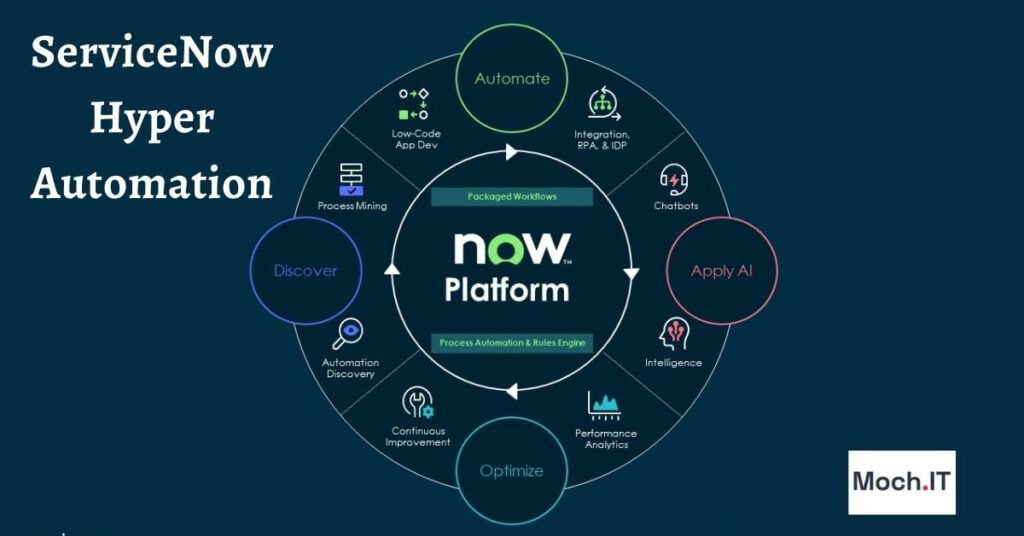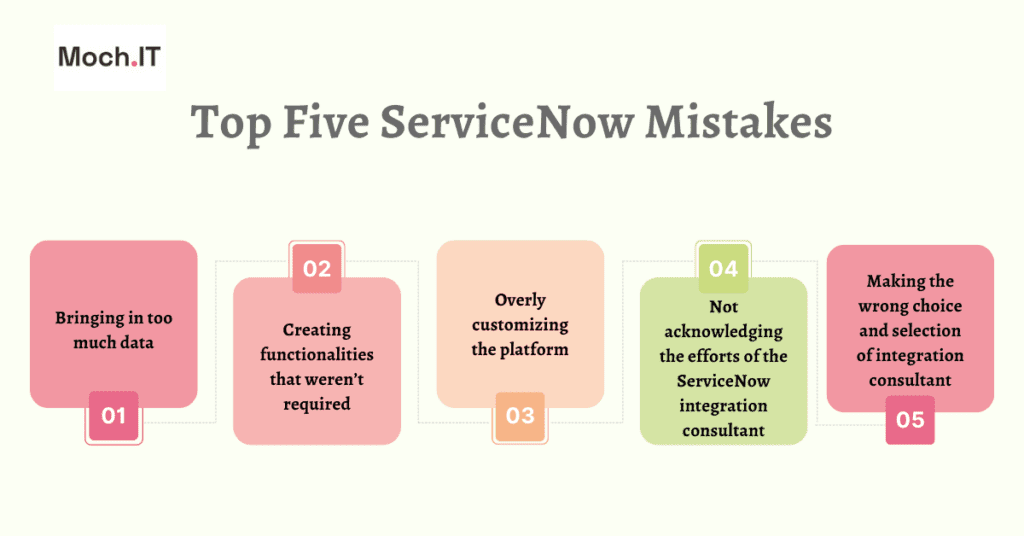Today’s fast-paced business environment requires organizations to streamline processes and improve team collaboration. A great way to achieve this is by integrating different team tools and applications. ServiceNow and Jira by Atlassian are two popular tools that help organizations achieve their goals.
This blog will explain everything about ServiceNow Jira integration, its uses, benefits, and how to set up Jira ServiceNow integration.
ServiceNow and Jira: An Overview
ServiceNow is a cutting-edge, cloud-based platform offering different services like ServiceNow ITSM, ServiceNow ITOM, and ServiceNow HR Delivery Service that help organizations to manage and automate their processes. ServiceNow services serve as a platform and offer the base required for daily business activities. ServiceNow has a seamless user interface and convenient integration with other tools for maximum efficiency.
Jira is a powerful platform developed by the Australian software company Atlassian that allows teams to manage projects, track issues, and automate workflows. Jira has now been widely used in all organizations as a system staple. It was initially designed for software companies, but it has become adaptable to various enterprises over time.
Organizations can get the best of both worlds by integrating ServiceNow and Jira. The ServiceNow Jira integration connects the two platforms harmoniously, empowering teams to collaborate and work more efficiently.
Key Features of ServiceNow Jira Integration
Bi-Directional Sync:
Bi-directional sync is one of the most crucial features of the Jira ServiceNow integration. Any changes or updates made in one platform are automatically demonstrated in another. If a ticket is created in Jira, it will be shown in ServiceNow and vice versa. This feature ensures that all teams do their work by utilizing the latest information.
Mapping of Values and Fields:
Users can map fields and values between the two platforms using the ServiceNow Jira Integration. As a result, teams have the option of selecting which areas and values are synchronized between the platforms. A user can, for instance, choose to map the “urgency” field in ServiceNow to the “priority” field in Jira.
Automated Workflows:
One of the incredible perks of integrating Jira with ServiceNow is automated workflows, meaning predefined rules can trigger specific platform actions. For example, if a ticket is marked as “resolved” in Jira, the automated workflow automatically updates the correlating key on the ServiceNow platform.
Integrated Reporting:
We all know the importance of correct information and analytics in business. The integrated reporting feature in the ServiceNow Jira integration allows teams to generate reports that include data from both platforms. This lets teams get a complete picture of their operations and make data-driven decisions.
What are the Benefits of Integrating Jira With ServiceNow?
Integrating Jira with ServiceNow provides organizations with streamlined workflows and improved customer service.
Ease Manual Work
The communication between information stored in silos is typically manual, repetitive, and error-prone. Customers’ service tickets must be copied and pasted from ServiceNow to Jira, which is an annoying and old-fashioned procedure in the age of automation.
ServiceNow Jira integration empowers bidirectional communication, automates the real-time data transfer between the two applications, and stamps out the need for manual transfer. As a result, tickets can be resolved more quickly and effectively.
Enhanced Collaboration
Teams working in siloed environments can be a massive drawback to the productivity of an enterprise. When the customer service teams and development teams work in separate domains and are not adequately connected, the results are unreasonable delays in issues resolution, which leads to increased costs.
When Jira and ServiceNow are integrated, the action performed in one application can be seen in the other one almost immediately. Jira will create a ticket if an issue is reported in ServiceNow. All the comments, statuses, and attachments will be shared in real-time across both applications enabling better communication between various teams.
Preferred Tools: Better Productivity
As various applications come with different capabilities, it would not be sensible to demand all teams to work on a particular tool. People generally work better with the tools and applications they already know and have worked with. New tools require them to go through additional learning and training time.
Integrating ServiceNow and Jira allows your development and customer service teams to work in their preferred tool, maximizing their productivity. The development team might prefer Jira, and the customer service team might like to use ServiceNow.
The automatic synchronization of records and the flow of information in both directions guarantee that both teams are updated in real-time, resulting in a better customer experience and quicker problem resolution.
Greater Visibility
The visibility and traceability of processes and steps taken by the customer service team and the development team throughout the entire service life cycle—from when a ticket is raised to when it is resolved—are enhanced with a Jira ServiceNow integration.
This can help the team find the causes of delays, pinpoint the improvement barriers and adjust processes to speed up the resolution and delivery of a solution. Organizations can utilize the gained insights for well-informed decisions and improved customer service.
How To Set up ServiceNow Jira Integration
Getting expert and reliable help from companies like Moch.IT is usually recommended when setting up ServiceNow Jira integration. However, if you don’t want professional service or are familiar with the procedure’s technical expertise, here are some easy steps to help you integrate both platforms.
Identify the Integration Requirements
First and foremost, identify the integration requirements, such as which data needs to be synced, how often it needs to be synced, and what rules should be applied.
Install the Integration app
You must install an integration app that supports ServiceNow and Jira on both platforms. These applications offer tools and functions to effectively set up and manage the integration.
Configure the Integration Settings
The integration setting should be configured after the app installation is complete. This includes authentication credentials, sync settings, and field mapping.
Set up the Sync Rules
In this step, you must set up the sync rules determining how the data is synced between Jira and ServiceNow. This allows you to personalize the data sync as per your requirements. For instance, it can be directed to the system to integrate data in certain circumstances or conditions.
Test the Integration
Testing is crucial before implementing a new system or making any updates. Test the integration to ensure that it is working as expected and that data is syncing correctly between the two platforms to avoid any hassle in the future.
Manage and Monitor the Integration
Finally, monitor and manage the integration when you’re satisfied and have implemented it regularly. This involves checking for errors, updating the sync rules as needed, and ensuring the integration runs smoothly.
Best Practices for ServiceNow Jira Integration
Here are the best practices that you can follow to get the most out of your ServiceNow Jira integration.
Establish a Clear Data Mapping Strategy
Establishing a clear data mapping strategy is crucial for successful integration. This involves mapping fields and values between ServiceNow and Jira, ensuring the data is synchronized accurately and consistently.
Implement Role-Based Access Control
When you integrate ServiceNow and Jira, it is crucial to implement role-based access control to ensure that only authorized users can access and modify data on both platforms. This can help prevent data breaches and maintain data integrity.
Monitor and Maintain the Integration
Monitoring and maintaining the integration is critical to ensure it functions properly without errors. This usually involves observing system logs, checking for updates, setting up alerts, and performing regular maintenance.
Fazit
Jira and ServiceNow work well with each other. The integration provides seamless access to data on multiple tools, saving ample time previously wasted by teams getting stuck in cross-team information updates. This results in increased productivity of IT teams.
Real-time data availability accelerates the business’ growth by boosting employee workflows and lowering support costs. Integration can also be fruitful for companies as automating workflow processes helps reduce errors and manual tasks and increases team productivity.
Teams that like to enhance their productivity and services in a shorter period use Jira and ServiceNow platforms to control and monitor their line of services. However, choosing the right service provider and professional for integrating the systems is essential. The right partner will also help you identify the areas of your business that need optimization. Moch.IT is a reliable ServiceNow Jira integration that chooses and provides your company’s best and most authentic ServiceNow services.
You not only get the perfect solution but also get it customized according to your business needs. Whether you’re looking to optimize your IT operations or need help with ServiceNow, Moch.IT is the ideal partner to help you achieve your goals.


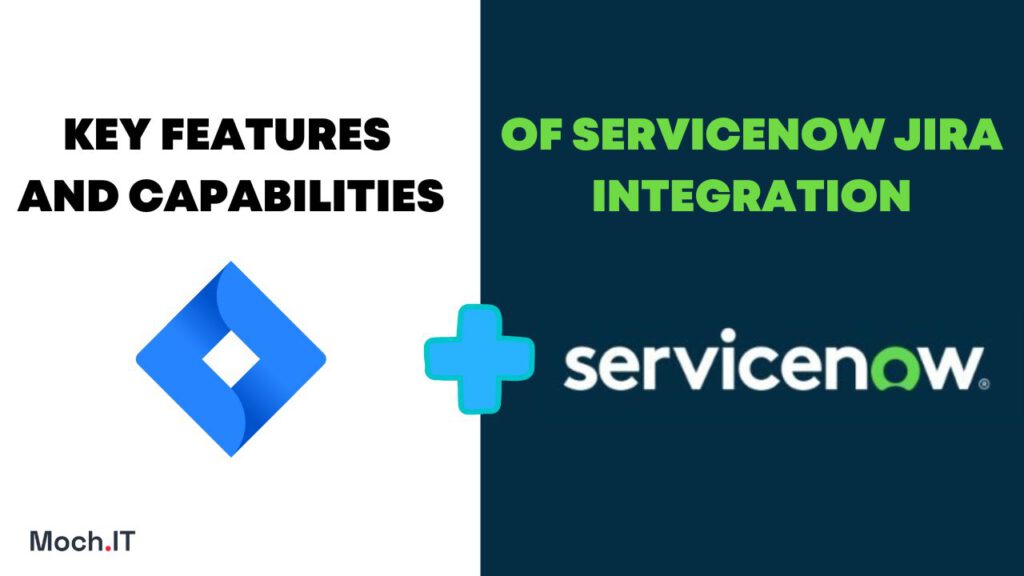
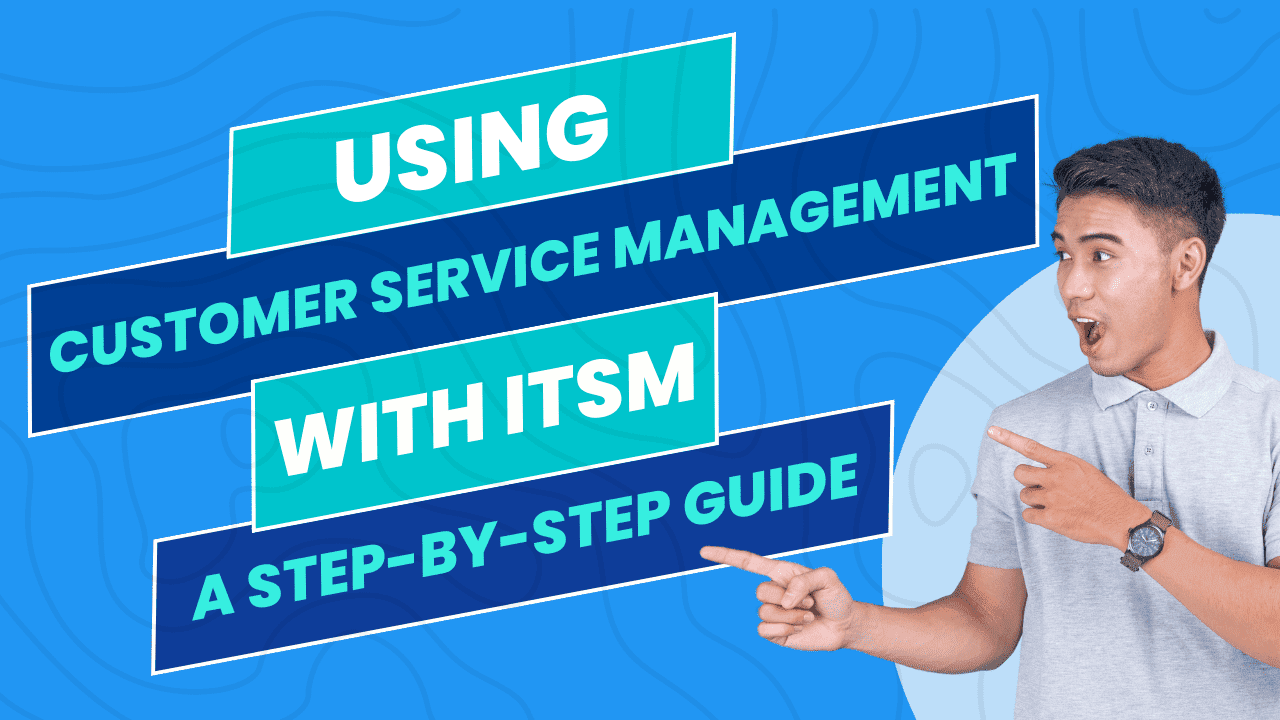

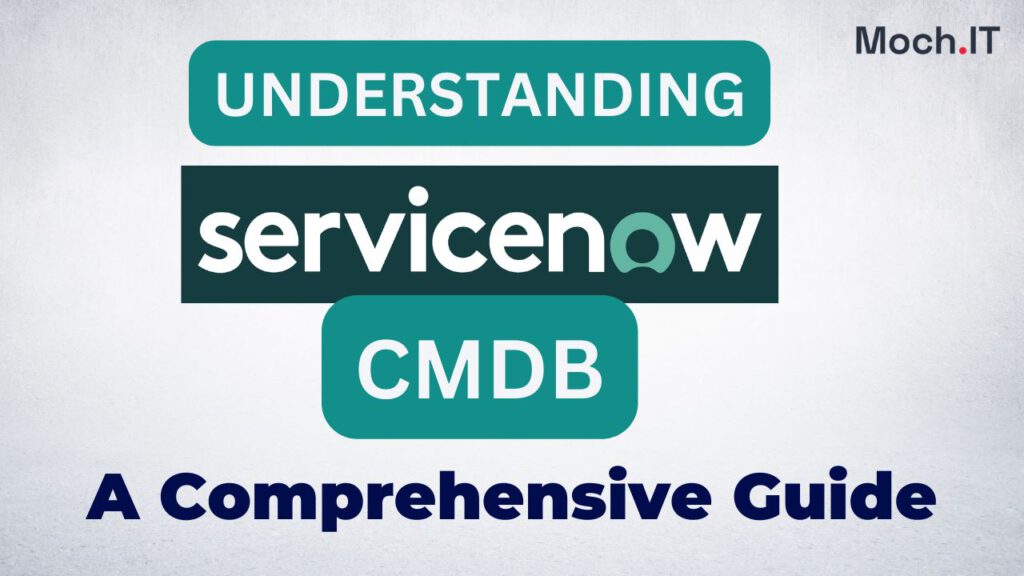
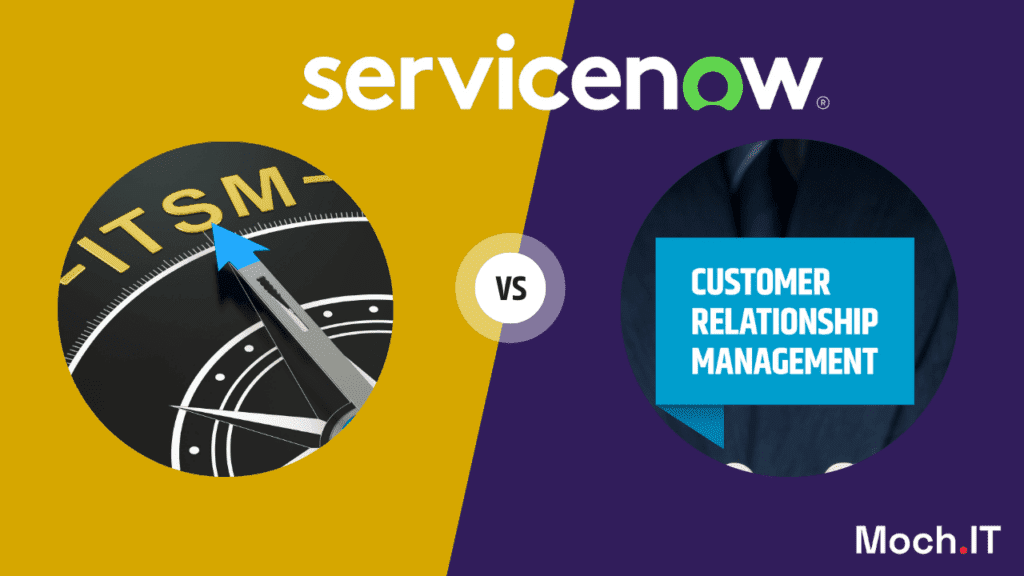





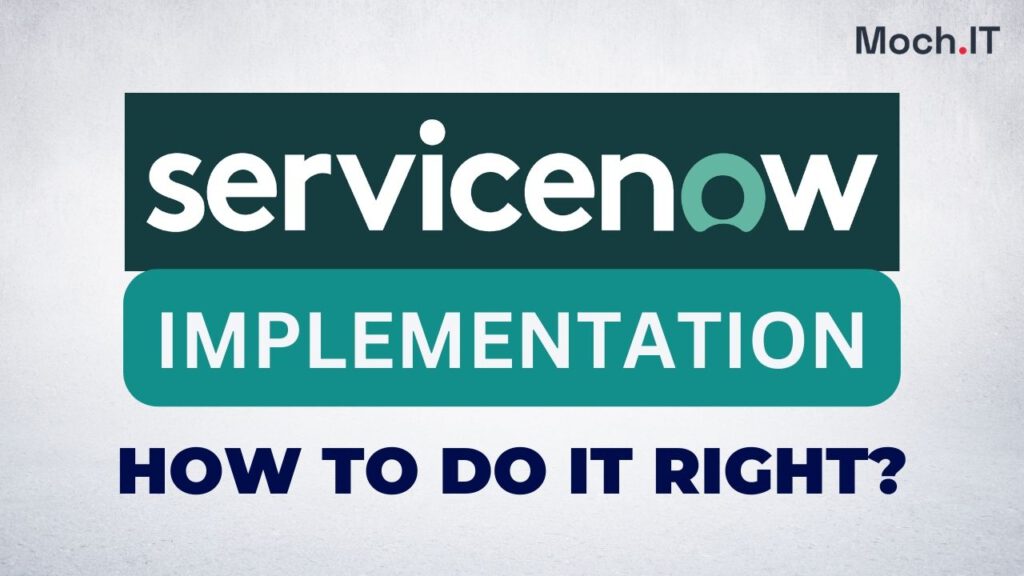


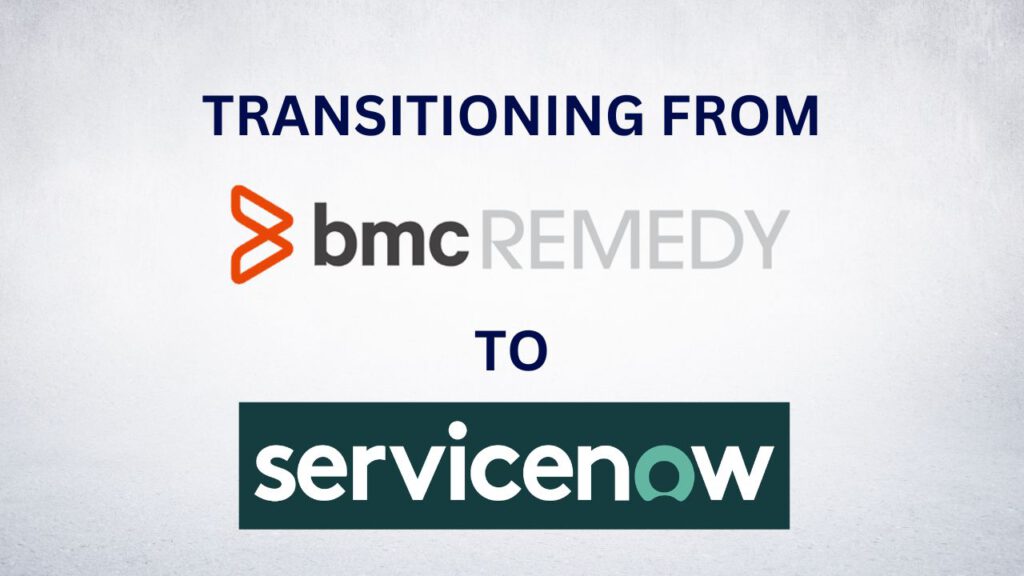






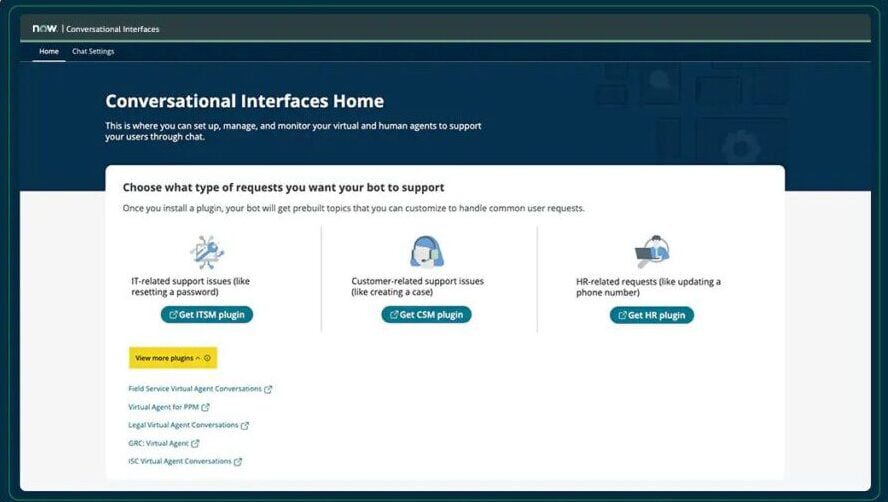
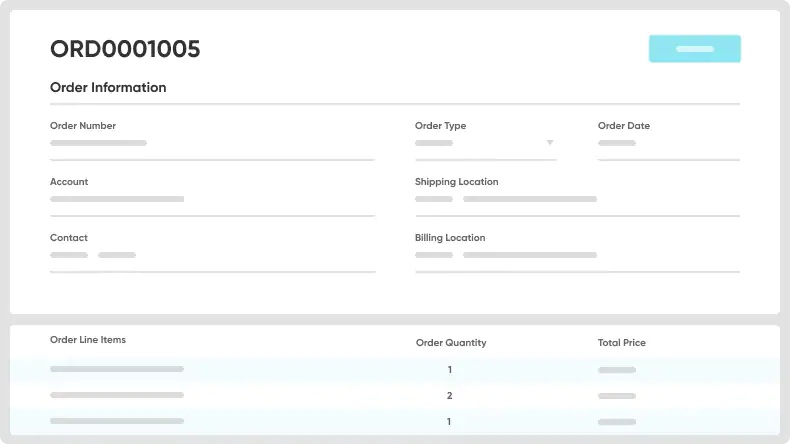


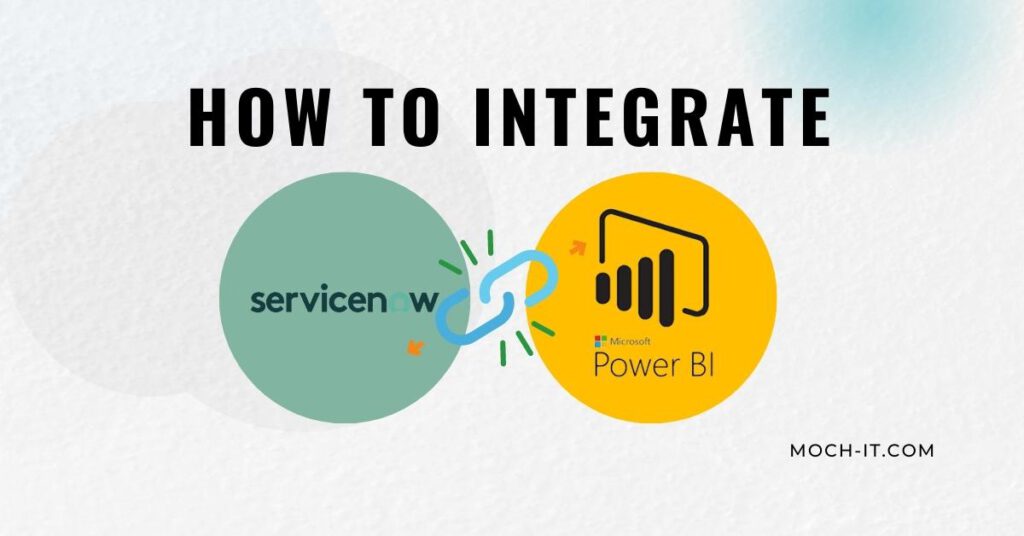




![Servicenow Latest Version: [ A Guide ]](https://moch-it.com/wp-content/plugins/phastpress/phast.php/c2VydmljZT1pbWFnZXMmc3JjPWh0dHBzJTNBJTJGJTJGbW9jaC1pdC5jb20lMkZ3cC1jb250ZW50JTJGdXBsb2FkcyUyRjIwMjIlMkYwOSUyRlNlcnZpY2Vub3ctTGF0ZXN0LVZlcnNpb24tMTAyNHg1MzYtMS5qcGcmY2FjaGVNYXJrZXI9MTczNDUwOTUyMy0zNjI1NCZ0b2tlbj1hYzI0Y2NlMThkNzRlODBm.q.jpg)

